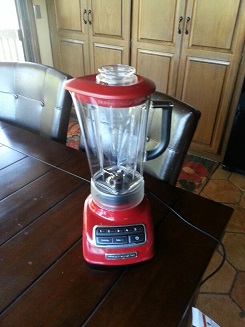This word popped into my head yesterday. I have no idea why except that perhaps I was supposed to write about it. I love this word. I love it because it has many layers and a profound meaning. It is not a casual word. It is not a mundane word. It is a substantial word. Once you have endured, you are that much stronger for having known it.
The definitions I found were: 1) To suffer (something painful or difficult) patiently. Synonyms listed were undergo, go through, live through. 2) To remain in existence, to last. Synonyms: survive, persevere, remain, stay.
To suffer something painful or difficult and to do it patiently. How do you do that? It takes great strength and faith. What do you do during a difficult or painful time if you decide not to endure it? Are you suffering impatiently? Are you ranting and raving at your condition? Are you angry with God (I was), at least temporarily, for dropping this miserable situation in your lap? Sadly some people simply do not believe they can endure and so they make the decision not to. They take their own lives. They choose not to endure.
I don’t think we are supposed to endure hardships without acknowledging their inherent difficulty. I think having an occasional pity party is fine, even healthy. But when the party is over, you must go home. Feeling sorry for yourself for short periods of time is acceptable. We are humans, after all, and have feelings. Trying to ignore your feelings can be disastrous and even crazy making.
When I think back to my two biggest endurance tests I think of my marriage during our time in Iran. (Read my book, “For Dear Life” for full disclosure). It was falling apart under the most stressful and miserable circumstances, all of which were self-created. I endured that emotional pain for two years and then when the marriage finally ended I endured the challenges and stresses of single parenthood until I felt competent enough to handle it. As I said, it was a misery of my own making. But endurance is endurance, whether you put yourself there or not. It still hurts, a lot.
My second period of endurance was when my horse was in the hospital for ten days and I would go every day to visit her, hoping for a miracle that never came. When I had to put her down I was angry with God for allowing me to be in that position, a position I tried to bargain with him against. It felt like he wasn’t listening. It was an awful time which I lived through and have finally come out of into a much better place. Endurance has left my house for the time being.
How we get through our own pain and suffering will evolve as we get older and wiser. As little children it is unbearable and we fight against it, believing that it will make things better. Of course it only makes things worse. As a teenage girl my pain and suffering became opportunities for drama. When I think back to those years it is interesting to me that one of the biggest times that called for endurance was my parents’ divorce. I handled it very well, perhaps too well. I think I repressed the feelings and soldiered on because I didn’t want to deal with it. Breakups with boyfriends, however, were full of endurance tests for me. Ah, youth…
Enduring is how we get through the hard times. When combined with faith and trust, it can be an opportunity for growth and its sibling wisdom. It changes you. It molds you so that you are a little bit different than you were before.
Be patient with yourself as you endure. Be hopeful that all will be well again. (Do you see a pattern here?)
What doesn’t kill us makes us stronger. Endure, a wonderful word to contemplate and even, perhaps, to experience.
